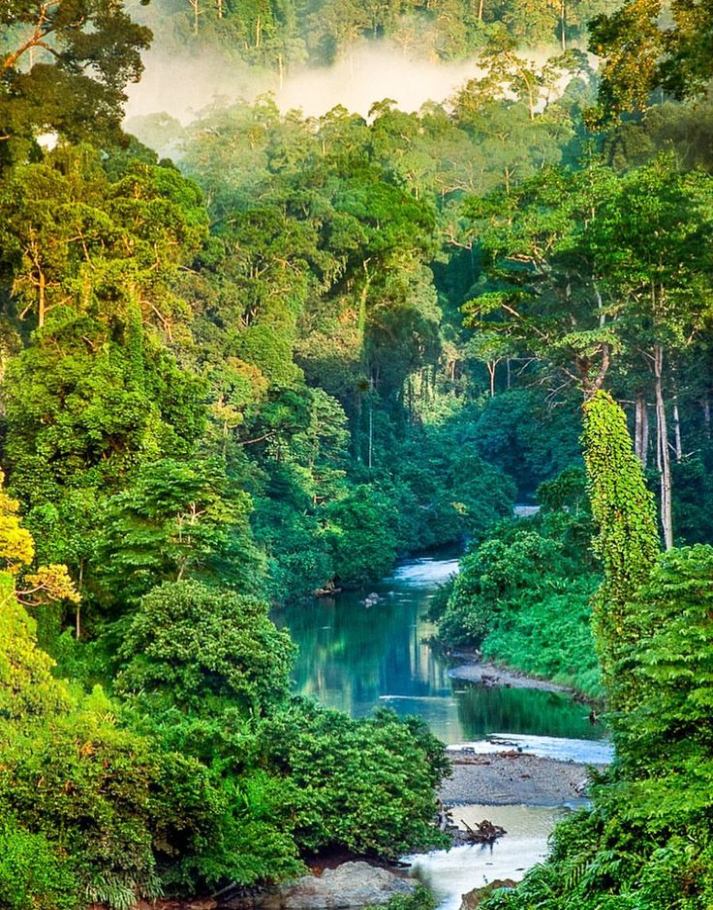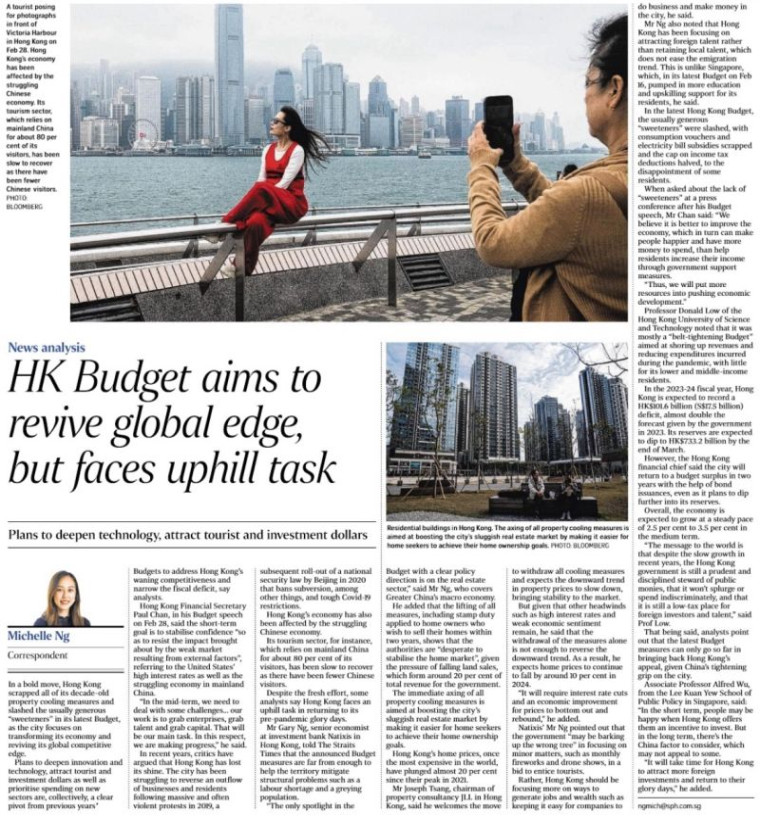Reviving Malaysia’s Tourism Amidst Global Challenges
Malaysia, a Southeast Asian gem, has long been a favorite destination for tourists worldwide. Known for its diverse culture, stunning landscapes, and mouth-watering cuisine, Malaysia’s tourism has faced significant setbacks in recent years. The global pandemic has left many of its once-bustling attractions eerily quiet, and the nation is now on a mission to breathe life back into its tourism sector. As Malaysia embarks on this journey of revival, there’s a palpable sense of optimism and resilience in the air, driven by the collective efforts of the government, local communities, and industry stakeholders.
Malaysia’s Vibrant Culture and Heritage
One of Malaysia’s strongest appeals lies in its rich cultural tapestry. From the bustling streets of Kuala Lumpur to the serene beaches of Langkawi, the country offers a unique blend of tradition and modernity. Festivals such as Hari Raya, Chinese New Year, and Deepavali showcase the harmonious coexistence of different ethnic groups. Each celebration is marked by vibrant parades, traditional dances, and an array of delicious foods, offering tourists a firsthand glimpse into Malaysia’s multicultural heritage.

Local markets buzz with activity, offering tourists an array of handicrafts, textiles, and culinary delights. The vibrant night markets, known as “pasar malam,” are a must-visit, providing an authentic taste of Malaysian street food and culture. These markets are not only a feast for the stomach but also for the eyes, with colorful stalls and the aroma of freshly cooked dishes filling the air. From satay skewers sizzling on the grill to the sweet fragrance of durian, the sensory experience is unparalleled. Additionally, traditional arts and crafts like batik and songket weaving are showcased, allowing tourists to purchase unique souvenirs while supporting local artisans.
Challenges Faced by the Tourism Sector
The pandemic brought the world to a standstill, and Malaysia was no exception. Travel restrictions, lockdowns, and safety concerns led to a sharp decline in tourist arrivals. Hotels, restaurants, and attractions struggled to stay afloat. Many small businesses, which heavily relied on tourism, faced closure. This unprecedented situation called for innovative solutions and a reimagining of the tourism landscape.
The Malaysian government has been proactive in rolling out measures to revive the sector. Initiatives such as domestic tourism campaigns, travel vouchers, and subsidies for tourism-related businesses have been introduced. However, the road to recovery is fraught with challenges, and the sector’s revival hinges on global travel trends and the ongoing battle against COVID-19. The importance of adhering to health protocols and rebuilding traveler confidence cannot be overstated. The government has also been working closely with international bodies to align travel policies and ensure a seamless experience for visitors.
Eco-Tourism: A Sustainable Approach
Malaysia’s natural beauty is one of its biggest assets. From the lush rainforests of Borneo to the pristine beaches of the Perhentian Islands, the country offers a wealth of eco-tourism opportunities. Promoting sustainable tourism has become a key focus area. Efforts are being made to preserve natural habitats and wildlife while providing tourists with an immersive experience. National parks and marine reserves are being protected and expanded, ensuring that future generations can continue to enjoy Malaysia’s natural splendor.

Eco-lodges and community-based tourism initiatives are gaining popularity. These not only provide visitors with a unique experience but also support local communities. By choosing eco-friendly accommodations and activities, tourists can contribute to the conservation of Malaysia’s natural treasures. Guided eco-tours offer insights into the rich biodiversity, from orangutans in Sabah to the coral reefs of Sipadan. These tours emphasize the importance of environmental stewardship and encourage responsible travel practices.
Digital Transformation in Tourism
The pandemic has accelerated the adoption of digital technologies in the tourism sector. Virtual tours, online booking platforms, and digital marketing have become essential tools for engaging with potential tourists. Malaysia is leveraging technology to enhance the visitor experience and ensure safety. The rise of remote work has also opened up opportunities for “workcations,” where professionals can blend work and leisure in idyllic settings across Malaysia.
Contactless payments, digital health passports, and virtual reality experiences are being integrated into the tourism infrastructure. These innovations not only cater to the tech-savvy traveler but also build confidence in the safety measures being implemented. The use of augmented reality (AR) in museums and historical sites allows visitors to experience Malaysia’s heritage in an interactive and engaging manner. Additionally, smart tourism apps provide real-time information on attractions, dining, and events, making it easier for tourists to plan their itineraries and navigate the country.
Culinary Tourism: A Gastronomic Adventure
Malaysian cuisine is a melting pot of flavors, influenced by Malay, Chinese, Indian, and indigenous cultures. The nation’s food scene is a major draw for tourists. From street food stalls serving satay and nasi lemak to high-end restaurants offering fusion cuisine, there is something to tantalize every palate. The variety and richness of Malaysian cuisine reflect the country’s diverse cultural heritage, making it a paradise for food lovers.
Food festivals and culinary tours are being promoted to attract food enthusiasts. These events provide a platform for local chefs and vendors to showcase their talents and offer tourists a taste of authentic Malaysian dishes. Cooking classes and food trails are also popular, allowing visitors to learn about the ingredients and techniques that make Malaysian cuisine so unique. The emphasis on farm-to-table dining experiences highlights Malaysia’s agricultural wealth and promotes sustainable food practices.
Revamping Iconic Attractions
Malaysia is home to several iconic attractions, such as the Petronas Twin Towers, Batu Caves, and Mount Kinabalu. Efforts are being made to enhance these landmarks and introduce new attractions to entice visitors. Infrastructure improvements, conservation projects, and innovative experiences are part of the strategy to revitalize tourism. The incorporation of interactive exhibits and immersive storytelling at historical sites aims to provide a deeper understanding of Malaysia’s rich heritage.
For instance, the Penang Hill Biosphere Reserve has been recognized by UNESCO, highlighting Malaysia’s commitment to preserving its natural heritage. Such recognitions not only boost the country’s tourism profile but also emphasize the importance of sustainable practices. Additionally, the development of themed attractions and adventure parks caters to families and thrill-seekers, broadening the appeal of Malaysia as a versatile travel destination.
Adapting to New Travel Trends
The travel landscape has evolved, with tourists seeking safer, more personalized experiences. Malaysia is adapting to these trends by offering smaller group tours, private accommodations, and wellness retreats. The emphasis is on quality over quantity, ensuring that visitors have a memorable and safe experience. Wellness tourism, focusing on holistic health and well-being, is gaining traction, with resorts offering yoga retreats, spa treatments, and mindfulness programs.
Adventure tourism is also on the rise, with activities such as hiking, diving, and wildlife spotting gaining popularity. Malaysia’s diverse geography provides ample opportunities for thrill-seekers. The country’s commitment to safety and sustainability makes it an attractive destination for the modern traveler. Adventure tours are designed to promote environmental awareness and respect for nature, ensuring that the natural beauty of Malaysia is preserved for future generations.
The Role of Local Communities
Local communities play a vital role in the tourism ecosystem. Community-based tourism initiatives empower locals and provide tourists with authentic experiences. Homestays, cultural workshops, and guided tours by local experts offer a deeper understanding of Malaysia’s culture and traditions. These immersive experiences foster meaningful connections between tourists and host communities, enriching the travel experience.
These initiatives also ensure that the benefits of tourism are distributed equitably. By involving local communities in tourism activities, Malaysia is fostering a sense of ownership and pride. This approach not only enhances the visitor experience but also contributes to the socio-economic development of the region. Community-led conservation projects and cultural preservation efforts are integral to this model, ensuring that tourism supports sustainable development goals.
Collaborative Efforts for a Brighter Future
The revival of Malaysia’s tourism sector requires a collaborative approach. Government agencies, private enterprises, and local communities must work together to create a resilient and sustainable tourism industry. Public-private partnerships, investment in infrastructure, and continuous innovation are key to achieving this goal. Collaborative marketing campaigns and international partnerships aim to position Malaysia as a premier travel destination in the post-pandemic world.
Malaysia’s tourism industry is at a crossroads, but with concerted efforts and a focus on sustainability, it has the potential to bounce back stronger than ever. The country’s rich cultural heritage, natural beauty, and culinary delights continue to captivate the hearts of travelers worldwide. By embracing new trends and prioritizing safety, Malaysia is poised to reclaim its status as a top tourist destination. The future of Malaysian tourism is bright, with opportunities for growth and innovation paving the way for a resilient and vibrant sector that can withstand global challenges.










